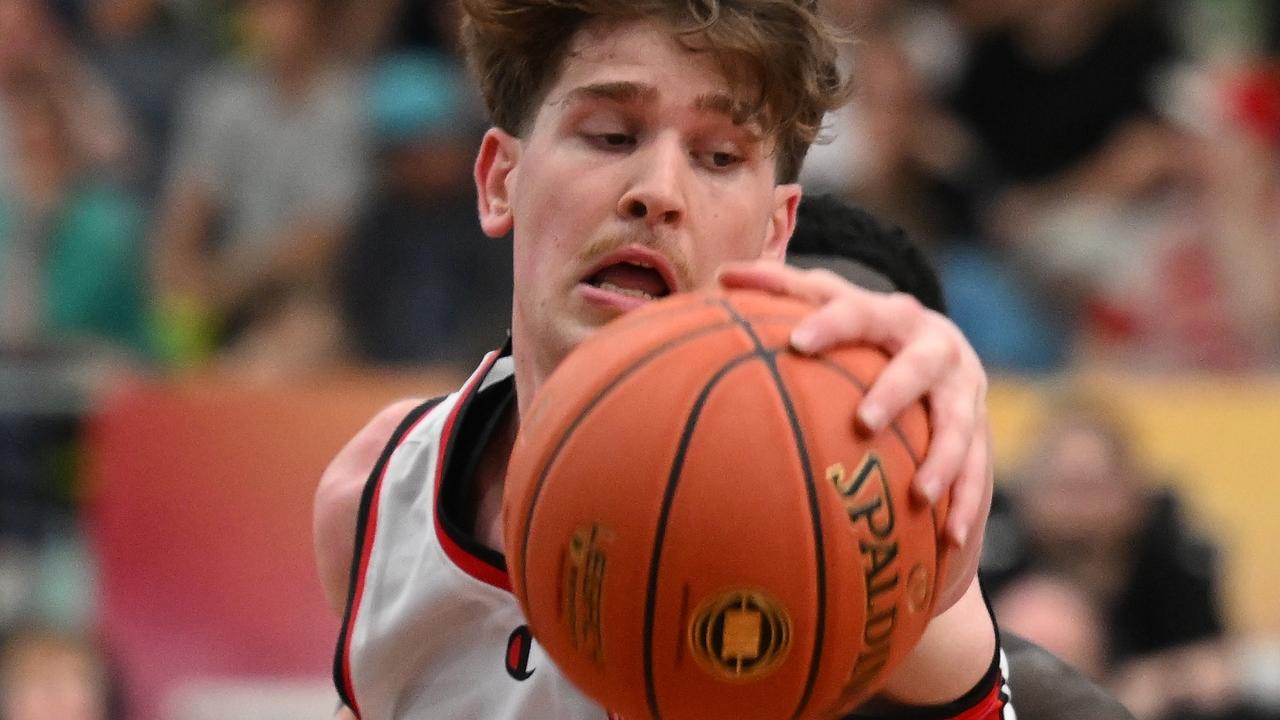NBL CEO David Stevenson identifies the key areas for the league’s future growth
After a record-breaking season, what’s next for the NBL? CEO David Stevenson opens up to SHANNON GILL and MATT LOGUE on the new broadcast deal, expansion and challenges as the league aims high for its place within Australian sport.
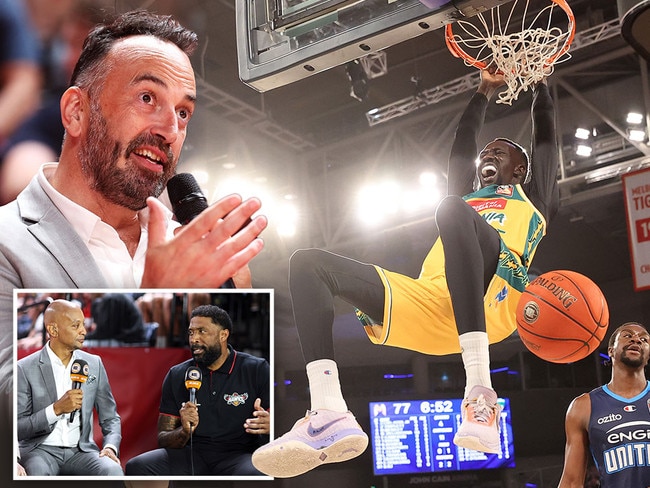
Basketball
Don't miss out on the headlines from Basketball. Followed categories will be added to My News.
The NBL is coming off another record-breaking season and arguably the greatest grand final series in history, but the booming league is only just getting started.
CEO David Stevenson says Australia’s domestic basketball competition has bold plans to become bigger and better.
As it prepares for its tenth season since owner Larry Kestelman assumed control of what many saw as a sinking ship, the NBL is bucking the trend of the so-called ‘tier two sports’ who are losing ground to the might of the AFL and NRL.
In a wide-ranging interview with CODE Sports, Stevenson addresses the league’s key issues from a new TV rights deal and expansion, to season scheduling and basketball’s structural issues.
Sunday Fun-day for new TV deal
Summer Sunday afternoons will become the battleground for the NBL’s next growth phase through television.
“That Sunday afternoon slot is where we want to own and capture the hearts and minds of
everyone to watch on a broadcast and to attend,” Stevenson told CODE Sports
“It’s really our sweet spot where the NBL shines.”
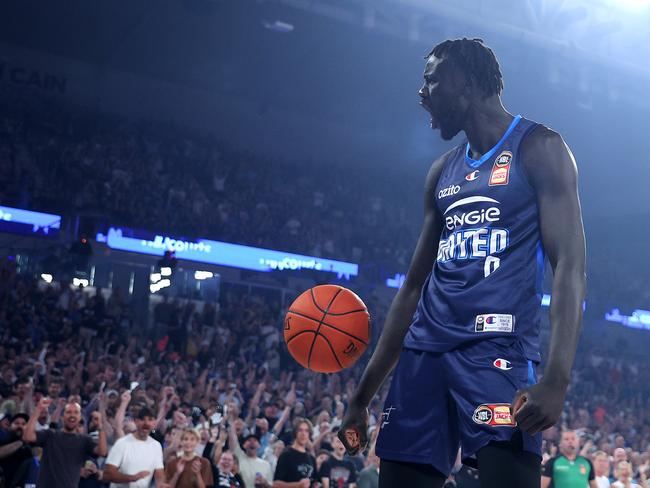
The current broadcast deal with ESPN and free to air partners Network Ten has expired, with a new deal believed to be imminent.
While Stevenson won’t talk specifics about the deal that seems tantalisingly close to completion, the NBL expects a better commercial and reach outcome.
He says the Sunday afternoon slot that has been regularly carried on free-to-air TV over the past few years is the major growth opportunity.
“There’s lots of other options on Friday and Saturday nights, but being family focused, having that time on Sundays where often there’s not as many other family commitments is important.”
The slot avoids major horse racing events through the spring and the peak times for BBL and Test cricket in the summer, while also generally not clashing with the best Australian Open matches during tennis’ weeks of summer spotlight.
It’s where the marquee games will increasingly be scheduled and likely the centrepiece of the free-to air component of the broadcast deal.
The strategy will be subscription TV (currently with ESPN) for the existing fan, while free-to-air television aims to lure in the new.
“That’s where the combination of those two becomes vital and without one of them, the other one gets under pressure,” Stevenson said.
“So it’s getting that balance right between those two. To unlock the next phase of becoming closer to a mainstream ‘tier one’ sport it’s getting that casual fan.”
In Stevenson’s favour is that he has had a compelling set of numbers to reel off during those rights negotiations.
Broadcast numbers were up 26 per cent on last year and the epic game five championship decider was the highest watched NBL game in recent history. Overall the grand final series was up 52 per cent on last year’s series.
Increasingly the NBL has pictures that broadcasters love too.
Nothing looks worse on camera than bays of empty seats while a commentator tells an audience how important this game is.
So with 40 games sold out (the first time since 1996 it reached that number), and total attendances topping the million mark, the NBL translates better to the screen than most sports.
“They’re the highest average attendances in our history, so what broadcasters are buying into is this great growth story.”
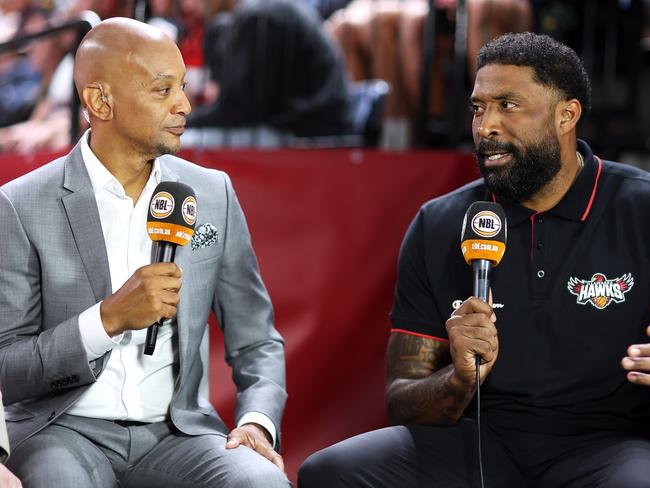
American eyes, and respect
Another reason that Sunday afternoon has become so attractive to the NBL is the increasing interest from the US.
Sunday afternoon games line up nicely in prime time for the US West Coast and while nobody is suggesting a financial windfall from selling rights in the US, the ability to get eyeballs on the NBL from basketball’s epicentre has a range of benefits.
Last season every NBL game could be viewed in the US on ESPN+ or ESPN3. It’s expected the new Fox, ESPN and Time Warner’s sports streaming conglomerate - launching soon in the US - will only offer more accessibility of the NBL to viewers needing a hoops fix.
“The numbers have been really encouraging and it legitimises our league on the biggest basketball stage,” Stevenson says.
“But it’s amazing the other benefits that we’ve seen with that broadcast. It’s helped commercially and it’s helped our conversations with player agents and emerging players who are considering the NBL.”
The increased interest helped land them prominent US television analyst and two-time NBA title winner Kenny Smith as an ambassador to the NBL Next Stars program. Smith will help bring more emerging talent to the NBL as a potential stepping stone to the NBA.
“Kenny showed genuine knowledge about where the league’s at and where the Next Stars program is,” Stevenson says.
“So the good news is that we’re not actively having to convince people to be passionate about the NBL.”
The NBL has boasted that it’s the second best league in the world over recent years, yet it’s a view that more and more in the US are forming too.
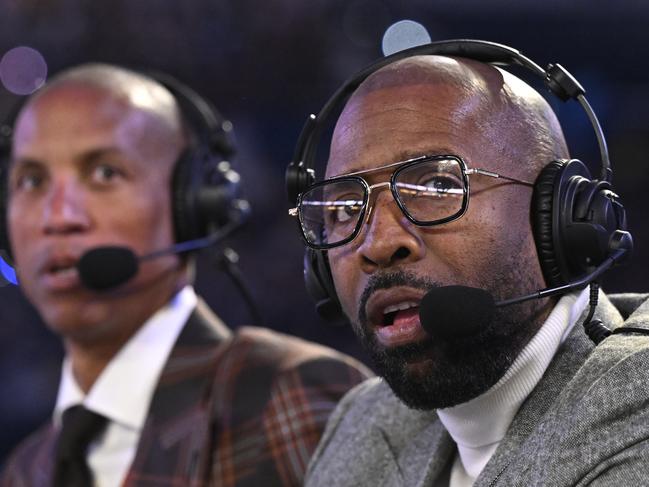
On the NBL’s most formal link with the NBA, Stevenson acknowledges that the NBL vs. NBA pre-season concept is far from perfect.
In 21 games dating back to 2017-18 the NBL has claimed just one win over its NBA rivals; the Adelaide 36ers caused a boilover in 2022/23, beating a Phoenix Suns side featuring Chris Paul and Devin Booker.
Last season’s NBL vs. NBA pre-season series regressed in quality, with four heavy defeats prompting justified questions about the future of the series, but Stevenson stressed the positives outweigh any negative.
“The benefit is for our players to play on that stage and we saw what the 36ers did to beat
Phoenix a few years ago was powerful,” Stevenson said.
“There are also challenges. The finalisation of those games are generally later compared to our NBL schedule.
“There is travel that has to be factored in, but we still see some value in it and that’s the feedback we have from the clubs with the amount of teams interested in playing.”
Following the JackJumpers: the model for expansion
One of the most innovative parts of the Smith deal is that he will receive an ownership stake in the next NBL expansion team.
Where that team will be based is the question NBL watchers have been pondering since the Tasmania JackJumpers launched with instantaneous on and off court success.
The NBL has held firm that any new expansion city needs to have strong fan support, strong corporate support and the physical infrastructure of a modern stadium and training centre.
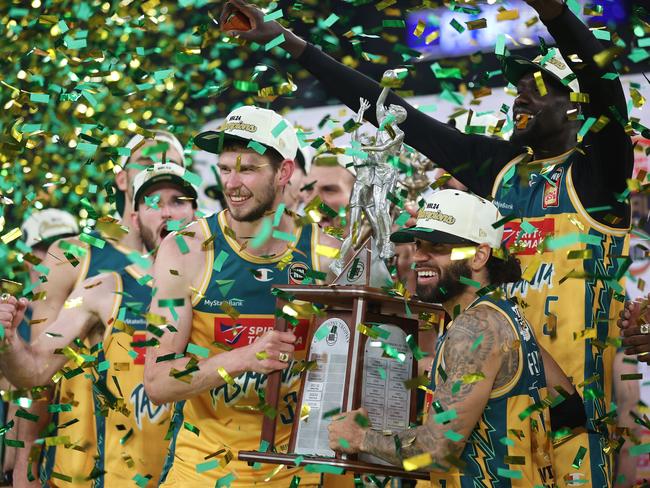
“We don’t need to expand for expansion’s sake,” Stevenson says.
“And we’ve seen the value of performing strongly from day one; I think the JackJumpers are the most successful expansion sporting club of any league in Australia.
“But this league has had a history (pre-Kestelman) of new teams coming in and going out pretty quickly.
“We just can’t afford to let our fans down. To build this emotional connection to a sport and to a team and then all of a sudden that team doesn’t exist.”
Stevenson says the NBL is currently in “seven or eight conversations with various destinations” within Australia or overseas.
It is believed that the Northern Territory and a move to resurrect NBL franchises in Canberra, Geelong or Newcastle all have appeal, but that Gold Coast is the front runner.
“Until we tick all those three boxes, and have all three aligned, then we won’t expand,” Stevenson says.
“But the Gold Coast is looking promising.
“It’s no secret that we take the Blitz to places where we want to test out the market and interest for basketball and an NBL team.
“We did that with the Blitz in Tasmania and we’ve seen the amazing run that the JackJumpers have had. We’ve taken a similar approach with the Gold Coast and this year’s Blitz there sold the most amount of tickets.
“The feedback for the event on the Gold Coast from all parties involved was pretty compelling.
“The Gold Coast is certainly high on our list, we’ve had positive discussions with the council and the government.”
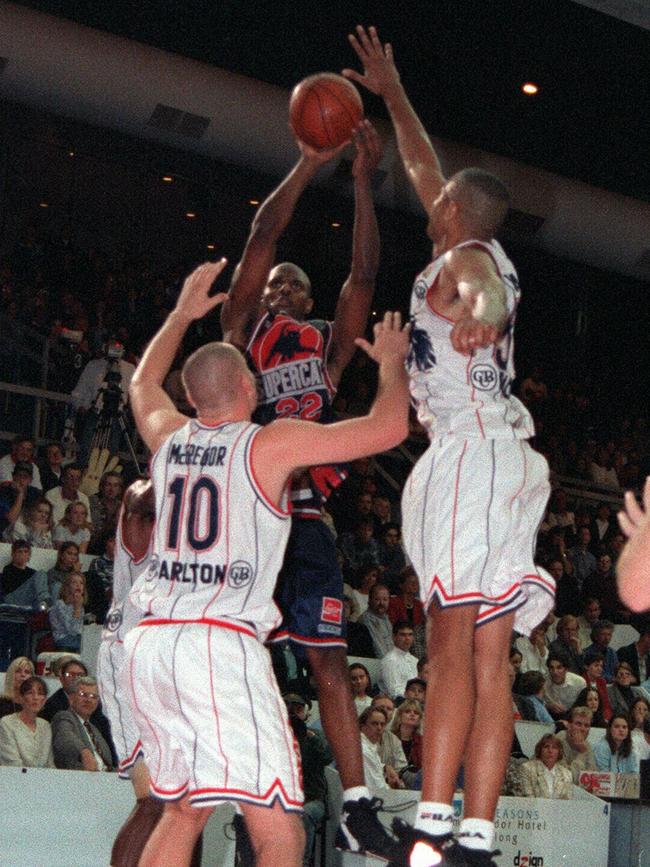
Stevenson also praised Newcastle – the original birthplace of the NBL – as a potential expansion option.
The Steel City hasn’t had an NBL team since the now defunct Hunter Pirates between 2003-2006 and the Newcastle Falcons from 1979 to 1999.
Stevenson can see merit in the Hunter capital rejoining the NBL.
“We’re certainly evaluating Newcastle on that list of half a dozen opportunities,” he said.
“We’re interested to see. Newcastle has got a great history in basketball and we know that participation is growing there.
“It’s also not far away from Sydney, so there is lots to like about Newcastle.”
The Tasmania example of being big enough to have the infrastructure and a market of fans, but not be saturated with sporting teams clearly appeals.
“We’ve locked the JackJumpers in as the team of the whole state,” Stevenson said.
“The advantage we have is we can play in cities without the same population and infrastructure requirements as other sports do. In a lot of cities, they’ve already got venues we can play in that don’t require a billion dollars of infrastructure investment.”
Darwin fits the bill for the support of a sports-starved city (currently there is no NT-based team playing in a top-tier national sports league in Australia), while the infrastructure on the Gold Coast of an existing mid-sized stadium and training centre at Carrara as well as a larger stadium (Gold Coast Convention & Exhibition Centre) is compelling.
What to do with the Illawarra Hawks?
While the NBL looks elsewhere for expansion, it also needs to tend to its own backyard. As Stevenson said, the last thing a growing league needs is clubs disappearing.
The last one to fold was the Townsville Crocs in 2016, though speculation over the financial viability of the Illawarra Hawks has hovered uncomfortably over the past few seasons.
“From an off-court point of view, we’ve got some clubs that are delivering fantastic financial returns, we’ve got a group that break-even and then we’ve got some clubs who are really finding it more challenging,” says Stevenson.
The Hawks are clearly in the ‘challenging’ bracket, yet against the odds their on-court performance gave hope.
Languishing at 2-7 after a disastrous 3-25 year in 2022-23, the Hawks sacked coach Jacob Jackomas and replaced him with Justin Tatum (father of Boston Celtics NBA star Jayson Tatum), before a remarkable form reversal took them all the way to the semi-finals.
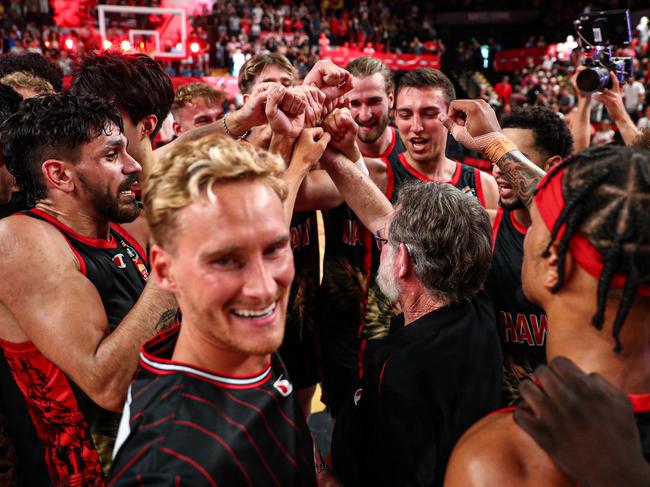
“As our only club that’s participated in every single NBL season, they’re a really important part of our league. Obviously there’s challenges when you think about how they connect with the community and their commercial portfolio but we’ve got confidence in the way that they’re trending on court.”
Ultimately the NBL sees their digital growth and new television deal as the conduit to help battling clubs like the Hawks.
“The biggest role of the NBL head office is to continue to drive growth in all of those metrics that can help the clubs,” he says.
“The bigger the broadcast audience, digital platforms, social media and attendance, then that really helps increase the value of the assets that the clubs hold.”
Season clashes and the broader basketball issue
In an ideal world, the NBL season wouldn’t clash with domestic powerhouses the AFL and NRL.
As Stevenson rightly points out, though, the world isn’t ideal.
The recent NBL season ran from September 28 – two days before the AFL grand final and three days before the NRL decider – to March 31.
Stevenson understands why hoops fans want clear air for the NBL away from the two domestic giants – and while the league will look at the schedule – they also insist the current window can be a success.
“It’s challenging with the schedule because you’ve got the NRL and AFL starting earlier than what they have previously,” Stevenson said.
“We could start the season earlier and finish before the NRL and AFL seasons start or do you start later and avoid their finals?
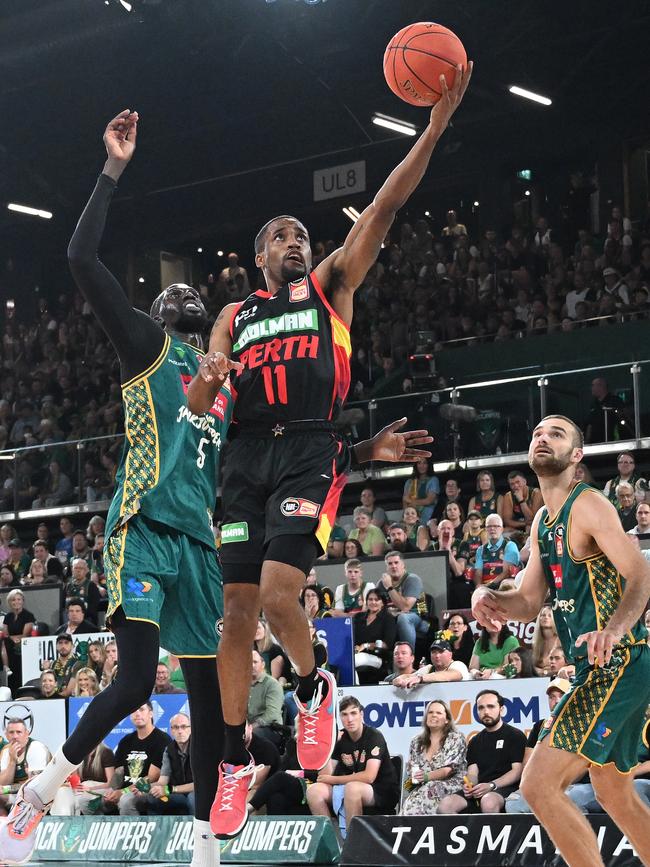
“We’re having a look to see what that model could look like, but even when AFL or NRL is on we’re still getting strong broadcast results and I think we can be thoughtful in the schedule to maximise our audience.”
Stevenson’s background at the AFL also helps inform his view on the structural issues for the sport more broadly.
The AFL head office calls the shots for the AFL and AFLW leagues and all of the programs that help hold together participation and community football.
That’s not the case in basketball.
The NBL is separate from Basketball Australia, who run national teams and the WNBL. The state associations in the federated model tend to drive their own participation then you’ve got big brother NBA, who have their own footprint in Australia.
“Frankly, that’s the biggest challenge we have as a sport,” Stevenson says.
“We are so fragmented.”
“The big focus for me in my first 12 months in the role has been how we can unite and align the sport. When everyone’s working on their own, then it makes it a lot more challenging.”
While the new television deal is the most important piece in the NBL jigsaw, in Stevenson’s opinion, administrative cohesion is what could fully realise the sport’s potential alongside his old workplace.
“When we’re aligned, that’s when we’ve got an opportunity to compete against some of those larger sport and entertainment offerings in Australia.”
More Coverage
Originally published as NBL CEO David Stevenson identifies the key areas for the league’s future growth



